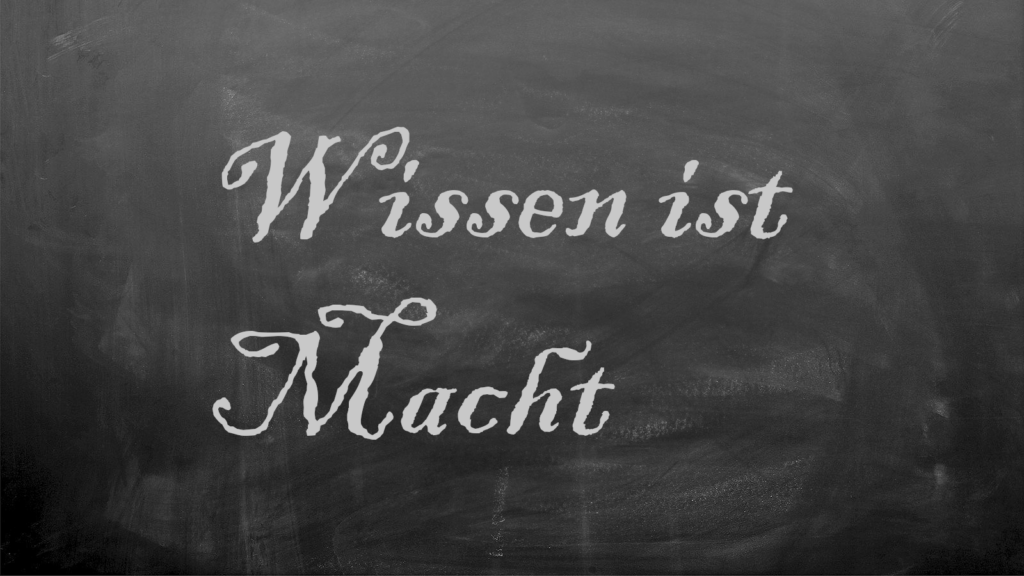
There is a similarity between “Risk” and “Knowledge”: Both have lots of definitions.
I myself use „Knowledge“ in the sense of the highest level in the chain of characters – data – information – knowledge.
Knowledge is characterized by a preparation and sorting of information in a way to describe a situation and a related activity instruction in order to achieve a target.
So, knowledge enables to answer an if-then clause: If these boundary conditions are given then do the following….
This may be a process description, a users manual, the advise of your chef or the line taken from the valid production control plan on the shop floor.
Therefore, knowledge firstly needs to be accepted as an important invest and property.
Knowledge in a second step needs to be rated frequently.
My expertise is to create an overview on different types and aspects of knowledge.
For the companies questions about value of knowledge should be answered:
Um Ihnen ein optimales Erlebnis zu bieten, verwenden wir Technologien wie Cookies, um Geräteinformationen zu speichern und/oder darauf zuzugreifen. Wenn Sie diesen Technologien zustimmen, können wir Daten wie das Surfverhalten oder eindeutige IDs auf dieser Website verarbeiten. Wenn Sie Ihre Zustimmung nicht erteilen oder zurückziehen, können bestimmte Merkmale und Funktionen beeinträchtigt werden.